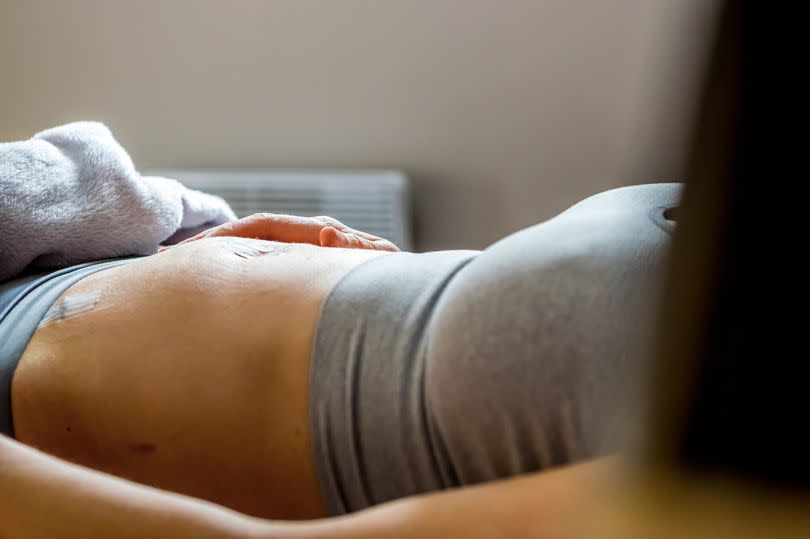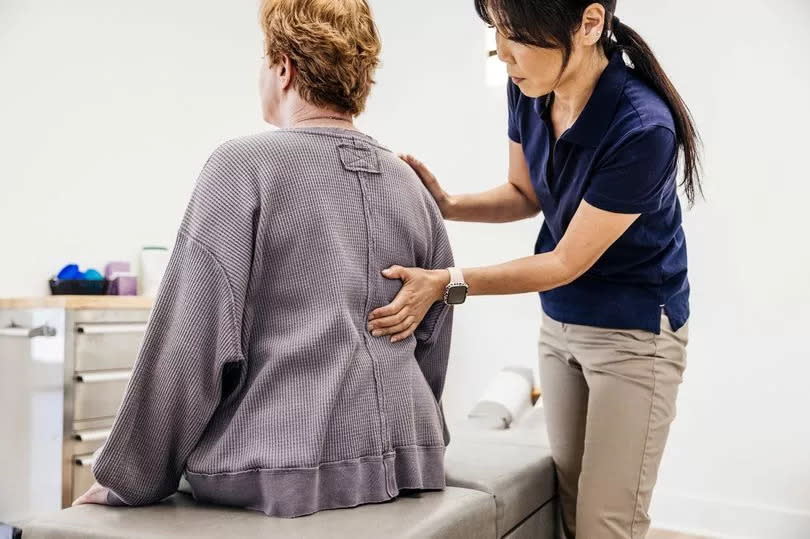NHS issues warning over common back symptom and urges patients to 'see GP'

The NHS has cautioned people to keep an eye on their back pain, as it may be a sign of a more serious condition. The health service's website indicates that pain in the lower back or between the hip bones may be a sign of womb cancer.
Also known as uterine cancer, it is most commonly diagnosed in women who have undergone menopause or have had a hysterectomy. Despite this, anyone with a uterus is at risk of developing this type of cancer. It typically starts in the womb's lining, known as the endometrium and is called endometrial cancer.
Its severity can depend on the size of the cancer, whether it has spread, and the individual's overall health, according to the NHS. So what symptoms should you look out for and when should you see a GP? Here is what you need to know.
What are the symptoms of womb cancer?
There are our main symptoms of womb cancer, according to the NHS. These can include:
bleeding or spotting from the vagina after the menopause
heavy periods from your vagina that is unusual for you
vaginal bleeding between your periods
a change to your vaginal discharge
Other symptoms of womb cancer can include:
a lump or swelling in your tummy or between your hip bones (pelvis)
pain in your lower back or between your hip bones (pelvis)
pain during sex
blood in your pee
You can read all about Womb (uterus) cancer through the NHS website here.
When should I see a GP?

You shouldn't wait for any specific symptoms or dismiss them, the NHS says. Instead, if you have any of the above, you should make an appointment with your GP right away, telling them you suspect womb cancer.
With many women feeling ashamed of talking about these topics, it urges: "Try not to be embarrassed, the doctor or nurse will be used to talking about these kinds of symptoms."
Even when these symptoms are present, they can stem from various conditions. The NHS cautions that having these symptoms does not necessarily indicate cancer.
It adds: "But it's important to get the symptoms checked by a GP. Do not wait to contact a GP. This is because if they're caused by cancer, finding it early can mean it's easier to treat."
I'm scared to visit my GP, what should I do?
According to Cancer Research UK, if you notice a change that isn't normal for you - or if you have symptoms - it's better to be on the safe side. If you are worried now, it won't go away until you have answers, it says.
The cancer experts say you can try the following:
Write down your symptoms including when they started, when they happen and how often you have them.
Write down anything that makes them worse or better.
If you would like to see a male doctor, or would prefer a female doctor, ask when you book the appointment - the receptionist will tell you if it is possible.
Tell your GP if you are worried about cancer.
Tell them if you have any family history of cancer.
Have a friend or relative with you for support - they could also ask questions and take notes to help you remember what the GP says.
Ask the GP to explain anything you don’t understand.
Ask the GP to write things down for you if you think it might help - if you are having a telephone or video appointment ask for the information to be left at reception for you to pick up.

 Yahoo News
Yahoo News 
